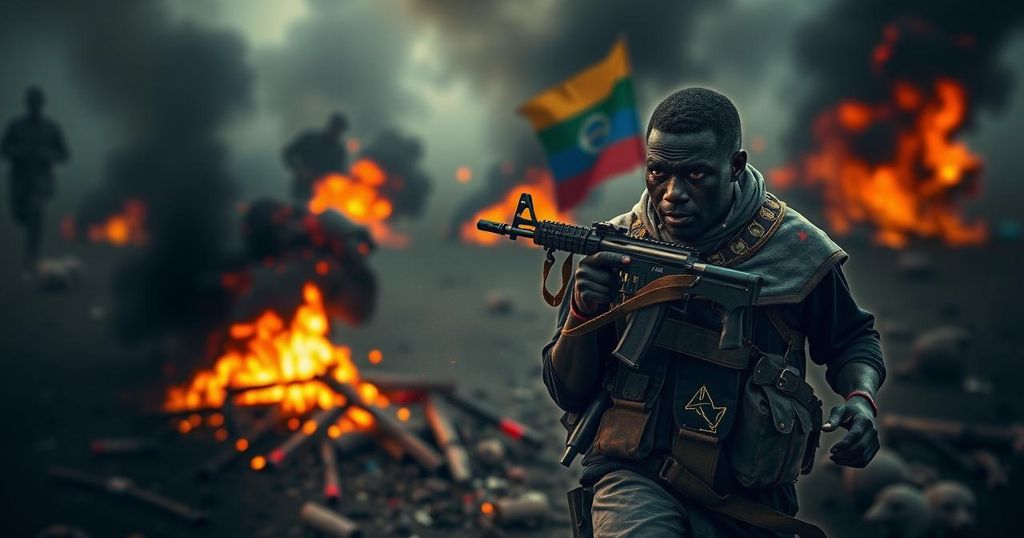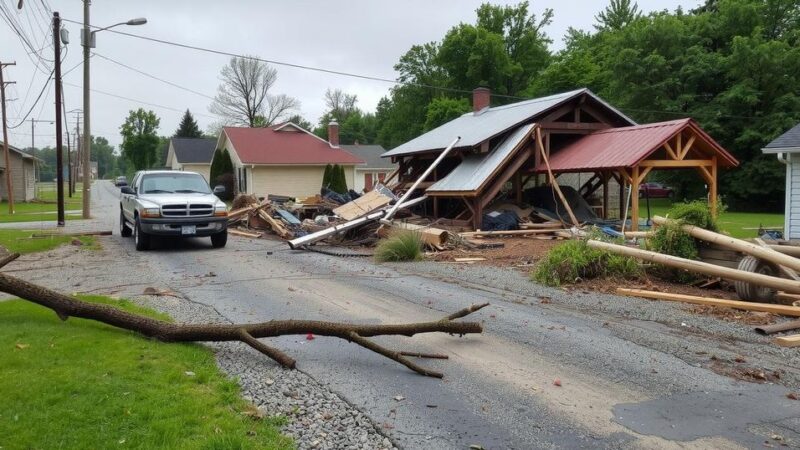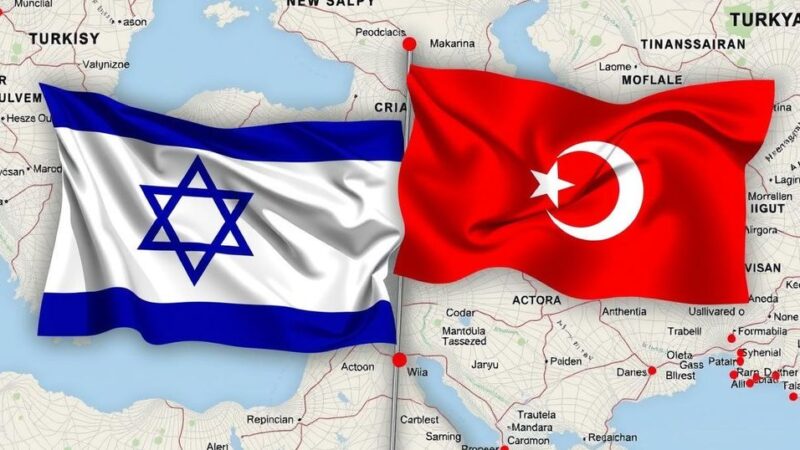Heavy gunfire erupted near military headquarters in Juba, South Sudan, on Thursday evening, with uncertainty surrounding its origins. The incident has raised alerts given the backdrop of previous civil conflict between President Kiir and Vice President Machar. Political tensions have escalated since October following the firing of the intelligence chief and the delayed national elections, signaling potential instability.
On Thursday evening, substantial gunfire erupted near a military headquarters in Juba, the capital of South Sudan, as reported by Reuters. Residents noted that the shooting commenced around 7 p.m. local time and persisted for over an hour, albeit with intermittent lulls. A military spokesperson stated that efforts were underway to discern the circumstances surrounding the incident, which has raised concerns among the populace.
The Republic of South Sudan has a fraught history, characterized by conflict between factions aligned with President Salva Kiir and First Vice President Riek Machar. Their rivalry culminated in a civil war from 2013 until 2018, resulting in catastrophic loss of life, with estimates of hundreds of thousands affected. Since the conclusion of active hostilities, both leaders have served together in a transitional government, which has seen relative peace disrupted by sporadic clashes over power-sharing disagreements.
Recent tensions in Juba can be traced back to early October when President Kiir dismissed the longstanding intelligence chief, Akol Koor Kuc, replacing him with a confidant. This move has been closely scrutinized, particularly as it followed the announcement of a postponement for national elections, which were initially scheduled for December, marking a second delay of electoral processes. Diplomatic circles and analysts have consistently noted these developments as indicators of underlying instability within the transitional government.
South Sudan has experienced significant political instability since its independence in 2011, particularly following the outbreak of civil war in 2013. The entrenched rivalry between Salva Kiir and Riek Machar has resulted in ongoing violence and humanitarian crises. Despite a peace agreement in 2018, lingering disputes about governance and power-sharing have led to sporadic violence. The dismissal of significant security leaders and the postponement of elections exacerbate existing tensions, signaling possible future conflict.
The recent outbreak of gunfire in Juba highlights the fragile state of peace and governance in South Sudan. Despite advancements since the civil war, tensions remain high, particularly following political dismissals and delays in the electoral process. As the situation develops, the international community continues to monitor the stability of this young nation, which has faced unprecedented challenges since its establishment.
Original Source: indianexpress.com







